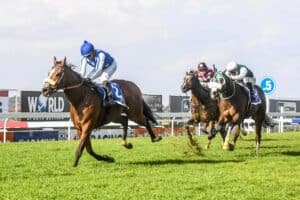The EU has finally done its check of the local AHS situation.

South Africans badly need some good news. Crazy as it might seem, racehorses could soon cheer us up.
A missive dropping into mailboxes this week looked like a flicker of light as we stumbled along our long, dark tunnel. Or were our eyes playing up?
The South African Equine Health And Protocols (SAEHP) revealed that it and the national Department of Agriculture had received “the draft EU report for the audit conducted in October 2022”.
Racing people knew instantly what this meant and read on avidly. But the note indicated nothing more would be revealed until the government department had formulated a response to the draft report, which would lead to a final report and a bewitching “Action Plan”.
Ban on South Africa
We needed to remind ourselves of the context of this sorry saga.
In 2013, the EU slapped a ban on the export of all horses from South Africa without lengthy and expensive quarantine measures of up to five months. Effectively, it was a worldwide ban.
The reason was fear of African horse sickness (AHS) spreading around the world – despite no real evidence that this could happen.
The ban meant top South African racehorses in training couldn’t easily fly to races with big purses in other countries – just as our home-bred nags were starting to show they were a match for the world’s best.
More importantly, though, it was a body blow to the South African thoroughbred breeding industry. The hidden strength of local bloodlines had become apparent, local prices were more than competitive, and a massive export market beckoned.
Hong Kong Jockey Club
That was all blown away by the EU’s fussy bureaucrats. Try as South African veterinary scientists might to convince everyone that there was no cause for the AHS panic – with world-class sickness-free quarantine protocols in place and backed by mountains of research evidence – the world played deaf.
Then a powerful ally, the Hong Kong Jockey Club, took up South Africa’s cause and things started moving.
An EU audit of the country’s export set-up was arranged for early 2020, but Covid struck. Now, finally, the audit has been conducted – apparently rather hush-hush.
With the local racing and breeding industries being severely squeezed, a chink of light is devoutly to be wished. The Woolavington being changed to an all-ages race to preserve its Grade 1 status, similar predicaments for the Cape Derby and the SA Derby, and the paucity of good endurance horses are all red flags for the game.
If South Africa’s dwindling band of breeders can look forward to exporting directly to the likes of the UK, the US, Australia, Dubai, Hong Kong and Japan without onerous, debilitating conditions, one sector of the national economy could start expanding – and maybe even get a bigger ball rolling.
Of course, maybe the EU will remain spoilsports. No-one’s telling us what’s in that draft report. But the SAEHP did end its teaser by saying it and the government were “pleased with the progress to date”.
Nudge, nudge, wink, wink?
The announcement of bookmaker World Sports Betting’s R52-million sponsorship of Highveld and Eastern Cape racing over the next four years was a cherry on the top of a good day.
Support Local Journalism
Add The Citizen as a Preferred Source on Google and follow us on Google News to see more of our trusted reporting in Google News and Top Stories.






